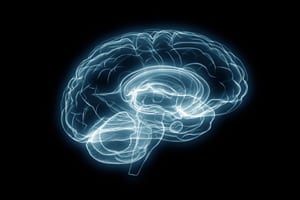 A 10-year study has suggested that use of brain training programmes can reduce the risk of dementia in healthy adults by 48%.
A 10-year study has suggested that use of brain training programmes can reduce the risk of dementia in healthy adults by 48%.
The findings of the study were presented at the Alzheimer’s Association International Conference (AAIC) in Toronto and – if confirmed in follow-up – would represent the first time that any intervention has been shown to reduce cognitive decline or dementia.
The ACTIVE (Advanced Cognitive Training for Independent and Vital Elderly) trial recruited more than 2,800 people aged 65 to 94 who carried out one of three cognitive interventions – classroom-based training focused on memory and executive reasoning, and a commercially-available computer programme – called Double Decision – designed to boost speed of processing.
Three quarters of the volunteers carried out the brain training, while one quarter had no contact and served as a control group.
The subjects underwent brain training in an initial series of ten group sessions, with a smaller group also receiving four-session booster trainings at one and three years after enrolment.
Using measures of cognitive aging, the investigators of the trial – which is being sponsored by the US National Institute on Aging – concluded that computerised speed of processing training had the greatest impact, reducing the risk of serious cognitive decline or dementia by a third for those undergoing 10 sessions, and 48% among those also given the booster course after 10 years of follow-up.
All told, 14% of subjects in the control group experienced significant cognitive decline. That proportion was reduced to 11.4% in the arm undergoing memory training and 11.7% in the executive reasoning group. That compared to 10.5% in subjects trained for speed of processing over 10 sessions and 8% among those given the booster course as well.
The two classroom-based training interventions did not appear to have the same level of benefit, according to Dr. Jerri Edwards of the University of South Florida, who presented the new analysis at the AAIC.
The results still need to be subjected to peer review scrutiny, but go some way at least towards restoring faith in brain training – which took a knock in 2014 after neuroscientists banded together to debunk claims being made by software companies as “exaggerated” and “misleading”.
The neuroscientists said there is little evidence that playing brain games improves underlying cognitive abilities, although they conceded there were some isolated reports that should inspire additional research.




